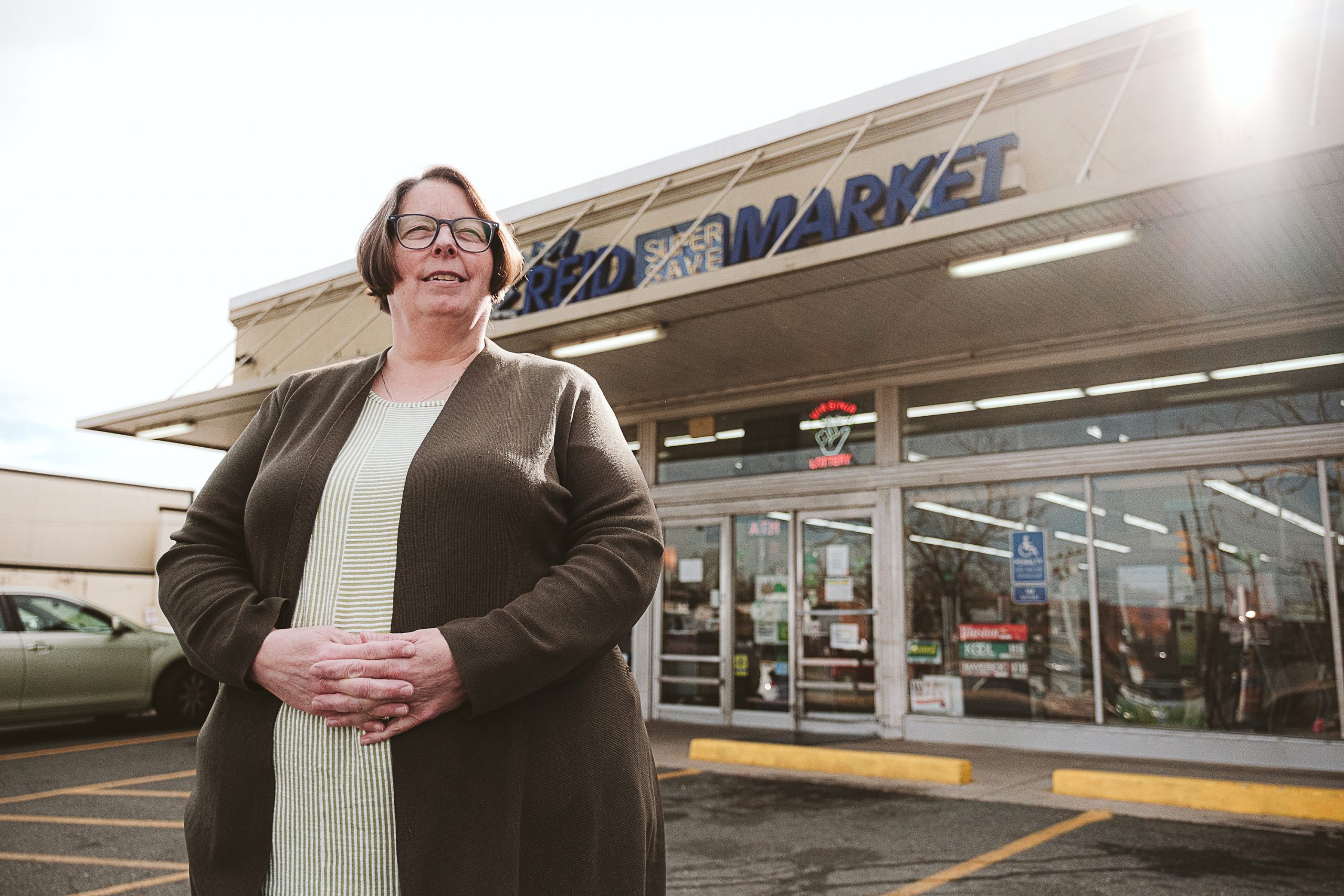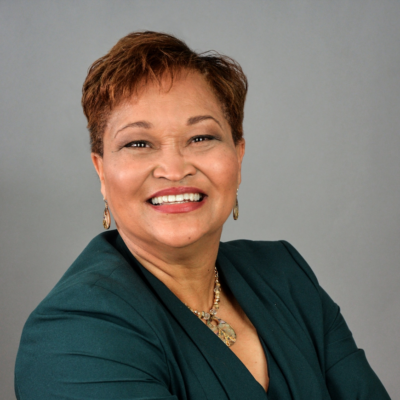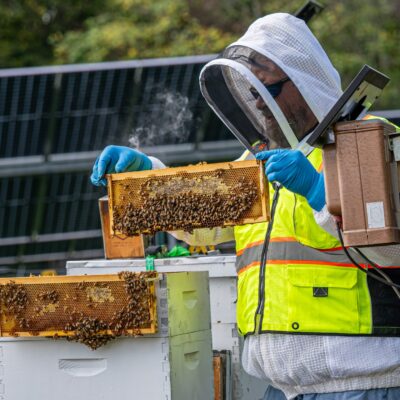Last fall, Megan Salgado stopped by Reid’s Super-Save Market on Preston Avenue and was gobsmacked. “The shelves were almost completely empty,” she recalls. “I’d seen on Instagram that the store was in trouble, but it was worse than I thought.” In January, she decided to galvanize support for the long-standing neighborhood grocery store and put up a GoFundMe page to raise $10,000 to help it survive.
Reid’s GoFundMe page—which, as of this writing, has raised more than $20,000, twice the original ask—generated local media interest, and stirred up debate: Is the purpose of public fundraising efforts to get a failing business out of trouble? Or is the purpose of a community funding effort to raise all boats in the community, whether they are an individual, a nonprofit, or a store that’s a neighborhood institution?
The market’s supporters and donors clearly feel Reid’s is a special case; many regard it as part of “the old Charlottesville.” The original store downtown, then called the Stop ‘n’ Shop, was bought by Malcolm Reid in 1961 and renamed. When the building burned down in 1982, Reid sold his satellite store on Preston Avenue to employee H. Kennan “Kenny” Brooks. Brooks died in 2016, and his daughters Kim Miller and Sue Clements took over. Sue, who works full-time for the University of Virginia, has gotten more involved in the grocery store’s operation in the last few years. Her husband, Billy, who handles day-to-day operations, has worked there for more than 35 years, while Kim is more involved in running the satellite Reid’s in Dillwyn, which opened in 2015.
The first thing Sue wants to make clear is her commitment to keeping the store open. “My father was the kind of guy who, if you came in and said you didn’t have the money for groceries that week, he’d let you shop and pay him back later—that’s just the kind of man he was. We still have customers who will call and ask us to put an order together for them. We try to help our customers out—we had a community day here the year before COVID hit, and it was a huge success.”
Reid’s still has a large community posting board outside its entrance, with everything from concert ads and lost pet fliers to business cards and event notices.
But times and the neighborhoods have changed. “It used to be that 60 to 70 percent of our customers were from the neighborhoods [Rose Hill/Birdwood, 10th and Page, and Starr Hill],” says Sue. “Now it’s under 50 percent.” As the neighborhood population has aged, customers pass away and families move out; large family homes get sold off. Real estate values have soared as the Preston Avenue corridor has developed, but the people moving into the new upscale homes and apartments have new habits. “People don’t do all their grocery shopping in one place anymore,” Billy Clements notes.
The Clements acknowledge a confluence of factors that they should have noticed earlier. Troubles began well before the pandemic—which actually boosted sales, as people were reluctant to go into large grocery stores and were buying in bulk for fear of shortages. But then, when the shutdown eased, people stopped hoarding. Post-pandemic issues hit the store hard; as sales dropped, they had trouble making the payments to distributors to keep products in stock. By last October, Reid’s had a sign on the door letting customers know that in spite of empty shelves, the store was still open. “We own this building, and it’s valuable real estate,” says Sue. “It would be easy to sell, but our customers were saying, ‘Please don’t leave us.’”
The crisis spurred the Clements to re-examine their operations, realizing that business as usual wouldn’t suffice. (Sue says proudly that although they have lost some employees to attrition, “all our people have continued to get paid, and there haven’t been any layoffs.”) This is when Megan Salgado walked in and mentioned the possibility of a GoFundMe page to one of the store managers. Other customers had brought up the idea, but Sue and Billy said they were reluctant to put up a page asking their own customers for help. They were, however, open to the idea of the community taking charge.
A few weeks later, Salgado decided to go ahead. She had grown up in Charlottesville, and spent her middle school years in the Rose Hill neighborhood. “I would always run into people I knew [at Reid’s],” she says. After moving away from Charlottesville, she recently returned to live in the Woolen Mills neighborhood and would shop at Reid’s a couple times a month. “It’s a really good location for a grocery store, I would stop by on my way to somewhere and pick up things I need. Once it was a bundle of firewood—you can’t get that at a convenience store.”
But her reactions to Reid’s troubles went deeper than convenience and nostalgia. “In Charlottesville, we talk about being a community and keeping things local, but sometimes there’s a disconnect between the talk and what’s happening. How can we be better about that?” To Salgado, Reid’s is even more than a beloved community institution—“it’s a grocery store in the middle of a food desert. If Reid’s shuts down, who are the people who will be hurt by that?”
When Salgado put up the page, she set a goal of $10,000, a figure she picked randomly, “and I thought that would be a reach.” She posted the link to Reid’s Facebook page, and shared it on NextDoor and her Instagram account. “I was surprised at how quickly [the GoFundMe page] caught on—it’s apparent the store has quite a following.”
Of more than 200 donations, the majority range from $10 and $100—but there are many for $200 to $500. Notably, there are two $1,000 donations from fellow businesses: Bodo’s and The Markets of Tiger Fuel, both of which have stores across Preston Avenue from Reid’s.
“I see Reid’s as a community resource, and the well-being of their business is important to the community,” says John Kokola, co-owner of Bodo’s. “And they’re our neighbor, I want to help when I can. They represent the spirit of the neighborhood, and have deep roots in Charlottesville’s history. And then, what would it look like if this business weren’t here any more? I hope that people will vote with their feet, and their pocketbook.”
Gordon Sutton, president of Tiger Fuel, says, “My brother [Taylor Sutton, Tiger Fuel’s COO] and I live downtown; we shop at Reid’s, we love the people there—they’re really service-oriented and friendly—and we want to see them survive.” The Preston Avenue Tiger Market staff have been known to send a tray of sandwiches over to the Reid’s staff for lunch.
Sutton acknowledges the objections that have been voiced about donating to a business when so many community efforts in Charlottesville need support. “I vetted the idea through our management and our marketing director, who oversees our efforts to support local nonprofits, and got their blessing. We all see Reid’s as a community institution.”
In the end, Sutton says, he and his colleagues decided that Reid’s was a special case, and a place worth supporting: “I’m cheering for an old institution that I like.”
So is long-time customer Norman Lamson, who has lived in the Rose Hill area and patronized Reid’s for 30 years. “I’ve always done all my shopping there,” he says. “It’s five minutes away, and they have the best meats in Charlottesville.” Seeing the empty shelves “was sad—I figured they were having difficulties, so I decided to keep going there to support the store. It’s important that it’s a family business.”
While the outpouring of support was welcome, the Clements know that Reid’s has to succeed as a business to survive. The first step, says Sue: “Address what we’re selling. In the past, the grocery business was all about options. But now, we’re going to be stocking fewer products while still offering a range of high-, low-, and midpoint cost items.”
Reid’s has always been known for its meat and produce. Fresh fruits and vegetables can be hard to find in a small mom-and-pop outlet, but Reid’s has an entire wall of produce at prices close to the large supermarkets. One online reviewer may have noted that you can’t find bok choy or papaya, but then there’s plenty of shelf labels noting what foods are eligible for SNAP benefits. “We are trying to serve all the genres of our neighborhood,” Sue says.
But it’s the meat department that gets customers raving—and coming back. Reid’s is one of the few stores around that has its own meat-cutter, a skill that is less and less available as more large outlets stock only pre-cut and pre-wrapped meat. The market carries a wide selection of beef, ready to sell or cut to order. Billy says proudly, “You want your steaks two inches thick, fine. You can even call ahead.” Reid’s selection of pork runs from head to feet—literally. “We sell everything but the squeal” is clearly one of Billy’s favorite lines, and you can always find Kite’s Virginia ham. The offerings of poultry and fish are more basic; fresh fish is delivered once a week.
One innovation that has brought in buyers is the new value aisle. When a distributor has an overage, or a good deal on products the Clements think will suit their customers, they advertise the weekly special on Reid’s Facebook page and website, and in local fliers. These rotating specials can include special-offer meats and produce, as well as staples from canned tomatoes, cereal, and soft drinks to mac-and-cheese, vegetable oil, and Oreos.
Sue is aware the store’s marketing efforts have to expand, and she hopes the attention to its plight will encourage more people to come in the door. “Grocery stores are a penny-making business. But we’re here to serve the community—the people and families that work here, our family, and the families that shop here.”
As for the GoFundMe page, Salgado always saw it as a temporary measure to get Reid’s back from the brink. “The key is to have people patronize the place,” she says. “I hope people know that they ought to be shopping there. I hope they capitalize on this interest.”
Local resources for small businesses
“The challenges facing small local businesses aren’t any different here in Charlottesville,” says Matt Johnson, assistant director of the City of Charlottesville’s Office of Economic Development. “Sourcing supplies, slim margins, the cost of real estate whether you own or rent, attracting the right staff—these are universal problems. But because small businesses usually run with much tighter profit margins, they often have less funding available to facilitate change.”
Long-standing small businesses, especially those that are locally owned, have a special character, says Johnson. “People have emotional connections to these places, where they might have gone as children or shopped in their early years. That’s the benefit of having these businesses—they help to shape the community.”
OED strives to be responsive to businesses of all sorts and sizes, says Johnson. “One of our main purposes is to serve as a point of contact. Whether your business has challenges or you want to position your business for future growth, we want to point you to the resources you need, within city government or outside sources and partners.” He notes that OED is adding a staff person who will be specifically focused on supporting entrepreneurs.
Johnson cited other resources in the area which, like OED, are available without fees—and most of them have programs specifically geared to small, women-owned, and minority businesses:
- Central Virginia Small Business Development Center offers business counseling ranging from start-up advice to financial, marketing, and workforce development for established businesses; access to market and sector research; and a variety of events and training sessions.
- Community Investment Collaborative supports development and growth of community businesses and entrepreneurs, focusing on early-stage business education and connection to resources including mentoring, microfinancing, education, and networking.
- Virginia Small Business Financing Authority is the state’s business and economic development program, which provides access to financing programs specifically geared to small businesses.
Johnson also noted that Piedmont Virginia Community College runs a range of programs for business management and workforce development.






